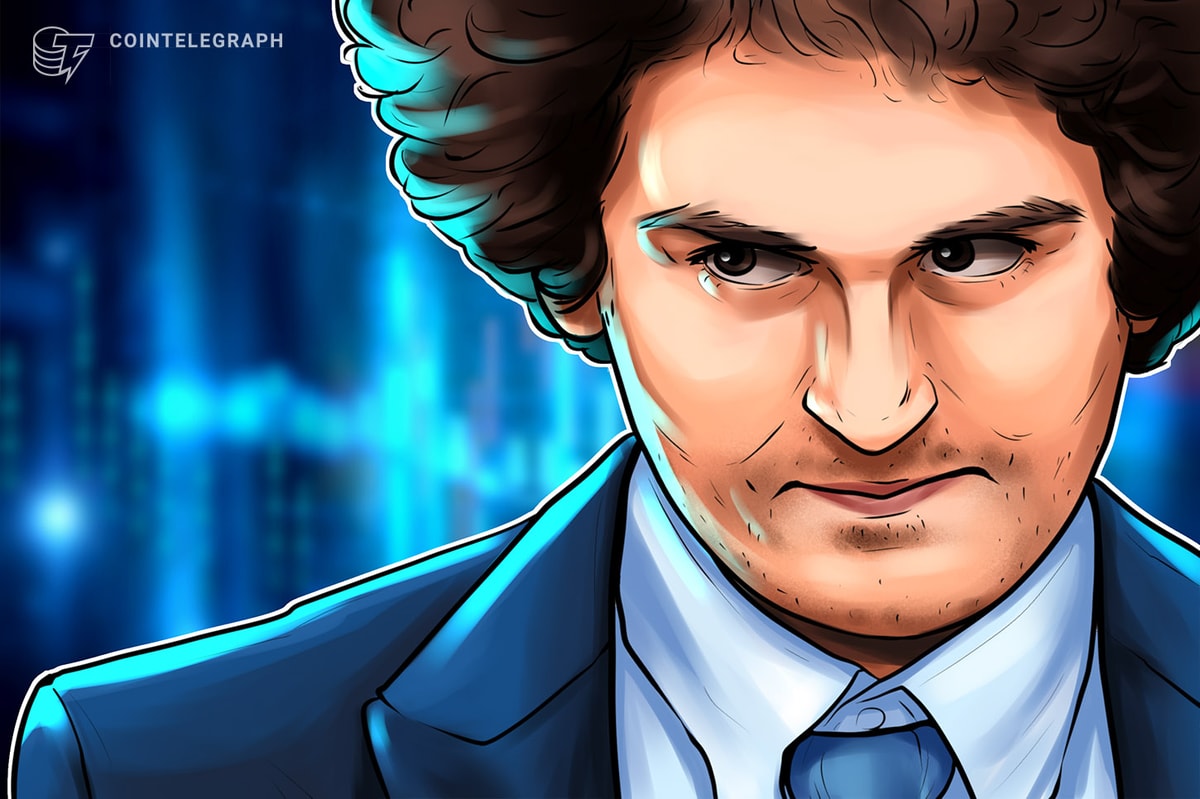Luxury real estate, political donations, investments, and magazine covers. A year ago, that was the life of Sam Bankman-Fried, Assistant U.S. Attorney
Luxury real estate, political donations, investments, and magazine covers. A year ago, that was the life of Sam Bankman-Fried, Assistant U.S. Attorney Thane Rehn remarked during the opening statements of the world’s most famous crypto trial.
“All of it was built on lies,” Rehn continued, claiming that the co-founder of Alameda Research and FTX “lied to the world” to get richer and increase influence by lobbying in Washington, D.C. Rehn’s statement apparently affected even Bankman-Fried’s defense counsel, who responded with a lukewarm remark. His attorney, Mark Cohen, portrayed his client as an entrepreneur who made mistakes during times of accelerated growth. “There was no theft,” he told jurors.
At the gallery, among journalists and attorneys, were Joseph Bankman and Barbara Fried, parents of the defendant. While Joseph occasionally smiled over the last few days, Barbara stared at her son in courtroom for hours.
This week, four witnesses testified in the trial at the United States District Court in Manhattan. The list includes a French trader, an investor in FTX, alongside Adam Yedidia and Gary Wang, former close friends of Bankman-Fried.
Sam Bankman-Fried trial highlights were covered by Cointelegraph on the ground.
Marc Julliard
The prosecutor’s first witness to the jury was a cocoa trader from Paris, currently living in London. Marc Julliard was one of the victims of the FTX debacle in November 2022. Juilliard told jurors he had four Bitcoins on FTX, worth nearly $100,000 at the time. He recalled feeling anxious after trying to withdraw funds without receiving a return.
On FTX, he never traded futures. The Bitcoin stake was a substantial part of Julliard’s savings. Prosecutors used his testimony to illustrate how customers who trusted funds with FTX had been harmed since last year’s events.
Bankman-Fried’s defense tried to downplay prosecutors’ arguments, saying that the trader was a licensed professional in London who did not make decisions based on celebrity endorsements. Cohen noted that there was nothing wrong with hiring Tom Brady to run an ad for FTX.

Adam Yedidia
Adam Yedidia and Bankman-Fried became friends at the Massachusetts Institute of Technology (MIT). Before joining FTX as a developer in January 2021, Yedidia briefly worked at Alameda in 2017 as an intern. He was also one of the residents in FTX’s $35 million luxury property in the Bahamas.
According to his testimony, fiat funds from customers were received by FTX through an Alameda subsidiary called North Dimension. Every deposit made by a FTX customer was considered a debt owed from Alameda to FTX. At the time of the exchange’s collapse, this liability stood at $8 billion.
Yedidia’s learned about the billionaire debt between the companies months before its bankruptcy filing. “Are things okay?,” Yedidia’s asked Bankman-Fried in a paddle tennis court, mentioning Alameda’s liability. He did not receive a positive response. “We are not bulletproof anymore,” Bankman-Fried told him, adding that it would take the companies six months to three years to settle their accounts. “He looked nervous,” Yedidia recalled.
Until November’s collapse, Yedidia saw FTX taking over its competitors, Binance and Coinbase. He even spent his millionaire bonus to acquire a 5% stake in the firm.
“I trusted Sam, and Caroline, and others in Alameda to handle the situation.”
Yedidia resigned in November 2022, after learning that Alameda was using the funds sent from FTX customers to repay its debts. He has been collaborating with the U.S. Department of Justice since last year.
Matthew Huang
Matthew Huang, co-founder of venture capital firm Paradigm, invested a total of $278 million in FTX in two funding rounds between 2021 and 2022. For him, it was a complete loss.
According to Huang, the firm was not aware of the commingling of funds between FTX and Alameda, nor of the privileges that Alameda had with the crypto exchange. Alameda was exempt from the FTX liquidation engine, which closes positions at risk of liquidation, as shown by pieces of evidence brought by prosecutors from FTX code and database.
Under the exemption, Alameda was able to leverage its position and maintain a negative balance with FTX.
Huang admitted not conducting deeper due diligence on FTX, instead relying on the information provided by Bankman-Fried.
Day 3 of the #SBF trial, we’re here bright and early! ☀️ pic.twitter.com/PQ1rQV38Px
— Cointelegraph (@Cointelegraph) October 5, 2023
In Huang’s words, Bankman-Fried was “very resistant” to the idea of having investors on FTX’s board of directors, but pledged to build one and appoint experienced executives.
Gary Wang
Once co-founders of two prominent companies, Wang and Bankman-Fried found themselves on opposite sides of the courtroom this week. “I’m here because I committed wire fraud, securities fraud, and commodities fraud,” he told…
cointelegraph.com

COMMENTS